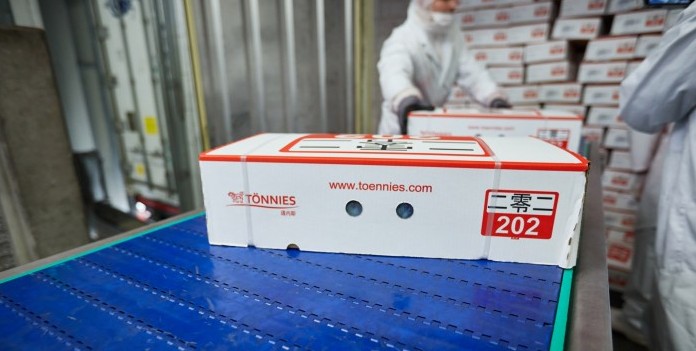The closure of the large Tönnies processing plant in Rheda-Wiedenbruck, in Germany is a concern and could have a downward impact on prices, according to AHDB analyst Bethan Wilkins.
In the past few weeks, the pig market in Europe has stabilised, with reports of improving meat sales and tightening live pig supplies. The EU average pig reference price has hovered around €163/100kg since the end of May, having fallen significantly over previous weeks.
While the outlook had looked to be improving, there is now uncertainty around this, due in part to the closure of the Tönnies plant after around 1,500 people tested positive for COVID-19.
The plant, which has stopped exports to China, reportedly processes in excess of 100,000 pigs a week and it seems it will be closed for a few weeks, Ms Wlikins said.
“Tonnies is apparently confident the pigs can be diverted elsewhere. However, it seems likely increased tightness in slaughter capacity will put downward pressure on prices in the coming week at least,” she added.
The plant usually takes large numbers of UK cull sow. This market may now face pressure, with most of these carcases exported to Germany, Ms Wilkins added.
“Germany is central to the European pork market and any price pressure is likely to have repercussions in other member states. Countries that export live pigs to Germany for slaughter may well face some difficulties, if these supplies prove difficult to divert,” she said.
“It is not currently clear how long trade with China will be interrupted, even when the plant does reopen. Access to China is important as it maximises carcase values, particularly at a time where EU demand is challenged by limitations on the foodservice industry. Other plants may need to increase their exports in order to maintain volumes overall.”
She cited reports that China has already increased inspections of imported meat, following the cluster of coronavirus infections linked to a wholesale market in Beijing. Plants in the US and Brazil may be particularly vulnerable, with many plants in these regions suffering serious outbreaks. “Clearly though, the EU is also not immune to these difficulties,” she said.
But she added: “Ultimately, China is still acutely short of pork. So far this year, large imports and releases from state reserves have been used in an attempt to reduce the high domestic pork prices, with some success.
“Any action that limits the import supply ultimately risks pushing pork prices up again. However, at the moment, preventing recurrence of COVID-19 is also a priority.
“Although it is highly unlikely that people can contract COVID-19 from food or food packaging, according to the World Health Organisation, caution over imported meat may well be another challenge facing suppliers to the Chinese market this year.”




